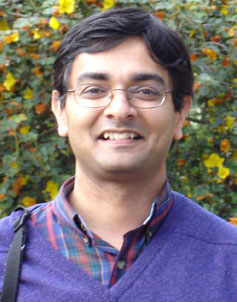Prof. Sachin Sapatnekar Named ACM Fellow
 Prof. Sachin Sapatnekar
Prof. Sachin SapatnekarThe Association for Computing Machinery has named Prof. Sachin Sapatnekar as one of its 2016 ACM Fellows for “contributions to the enhancement of performance and reliability in integrated circuits.” Prof. Sapatnekar’s research focuses on computer-aided design (CAD) of VLSI systems. Some of the specific problems that his research team have worked on recently include spintronics-based design, thermal analysis, reliability, timing analysis and optimization, power grid analysis, and 3D integration.
Sachin Sapatnekar earned his doctoral degree in 1992 from the University of Illinois at Urbana-Champaign. From 1992 to 1997, he was an Assistant Professor in the Department of Electrical and Computer Engineering at Iowa State University. He joined the Department of Electrical and Computer Engineering at the University of Minnesota in 1997, and holds the Robert and Marjorie Henle Chair and the Distinguished McKnight University Professorship. He has served on the editorial boards of several IEEE journals, and also as Editor-in-Chief of the IEEE Transactions on CAD. He has been technical program chair and general chair for several conferences. These include the Design Automation Conference (DAC), and the International Symposium on Physical Design (ISPD). He is a recipient of the NSF Career Award, the SRC Technical Excellence Award, the SIA University Researcher Award, and several Best Paper Awards at the DAC and other conferences. Most recently, he received the ICCAD Ten-Year Retrospective Most Influential Paper Award for the second time. He is also a Fellow of IEEE.
The Fellows program was established by the ACM in 1993 to recognize the professional, technical and leadership-based contributions of its outstanding members. The number of members recognized as Fellows cannot exceed one percent of the number of ACM professional members. The 2016 Fellows have been recognized for contributions in areas that impact our work and daily life. These include cloud computing, computer security, data science, Internet routing and security, large-scale distributed computing, mobile computing, spoken-language processing and theoretical computer science.


